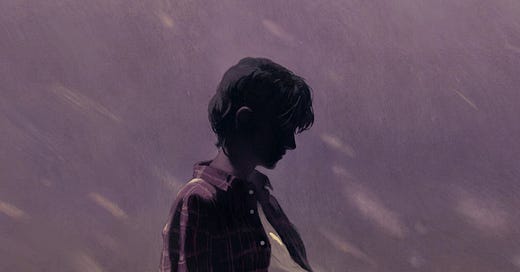There is so much great writing happening about motherhood right now, and I feel like it is my job to inhale it all. Below are a few pieces that spoke to me and represent the important conversations happening in the world today.
This searing essay by Merritt Tierce, “The Abortion I Didn’t Have,” is essential reading not just for the debate surrounding Roe v. Wade but about the story of motherhood that we are sold.
Favorite lines:
“…I noticed that the cloud of my consciousness had pulled apart, had become two clouds, and that one had drifted over to float above my son, permanently.”
“My personhood was erased and overwritten with MOTHER before I even knew who I was.”
“I felt as though I had to choose myself at my son’s expense, over and over, if I wanted to exist as more than his mother.”
“When I had to have a baby before I was ready, it felt as if my family was saying to me: Your time’s up. On to the next. Be the vessel, open your body and give us something more valuable than you. No one asked if I was ready to be a mother or a wife. No one asked if I was ready to disappear.”
This piece by Lydia Kiesling, “The Lost Mothers,” about Hollywood’s recent portrayals of motherhood, is a beautiful call for more art about motherhood, and a reflection about why art about mothers is rarely made. It discusses “The Lost Daughter,” “Scenes from a Marriage,” “C’mon, C’mon,” and “Maid.” I haven’t seen any of the movies or TV shows mentioned, yet I resonated with the article on a deep level. The author reflects on the urge to flee, maternal absence, and the deeper systemic struggles of parenthood.
Favorite lines:
“The mother occupies a bewildering place in American society, simultaneously omnipresent and irrelevant.”
“…made me reflect on the paucity of realistic representations of motherhood, and the difficulties inherent in creating them.”
“In this moment, there is something cathartic about a mother who says not only, ‘I prefer not to,’ but ‘I cannot,’ momentarily leaving the relentless work of caregiving to someone else.”
“When I watched ‘The Lost Daughter,’ I felt seen by its portrayal of the condition of living simultaneously in joy and desperation, nostalgia and impatience.”
Like so many pandemic parents, I began following Dr. Becky during the early days of shelter in place, and I still find her approach incredibly refreshing. This podcast, titled “Deep Dive: Myleik Teele on What No One Tells You About Parenthood” was an incredibly thoughtful conversation about the hard parts of motherhood. I particularly liked how they gave space to the discussion of how much we lose in motherhood. The focus is often on how much we gain (love, a child, a family) and thus we brush aside the loss as if it is disloyal to our love. But we must acknowledge the losses, as they are significant. (I also loved their venting about how exhausting feeding kids can be).
Anne Helen Peterson writes the Substack, Culture Study (which I highly recommend). She also came out with this interesting reflection on Vox about how our society is still structured to support the heteronormative, nuclear family. And how this leaves single Americans, and especially single women, at a disadvantage.
“American society is structurally antagonistic toward single and solo-living people. Some of this isn’t deliberate, as households cost a baseline amount of money to maintain, and that amount is lessened when the burden is shared by more than one person. There are other forms of antagonism, too, deeply embedded in the infrastructure of everyday life. Even as more couples than ever “cohabitate” without being married, so many of the structural privileges of partnership still revolve around the institution of marriage. (The US Census still conceives of the status of “single” as anyone who is not, at present, married.)”
“The current situation is an example of economist Jacob Hacker’s theory of “policy drift,” in which situations that policy was created to serve have changed significantly but the policy itself has failed to adapt, expand, or respond to that new reality. Alstott, the legal scholar, describes this gap as one between “legal fiction” and “social reality”: one that “undermines the ability of the tax-and-transfer system to achieve any of a range of objectives, whether fostering individual freedom, aiding the poor, or shoring up the traditional family.” Put differently, our designs no longer do what they were intended to do.”
Finally, a fascinating discussion of motherhood and Sylvia Plath between Amanda Montei, who writes the Substack, Mad Moms, and Dr. Heather Clark, the author of Red Comet, the new biography of Plath that was named one of the top five non-fiction books of the year by the New York Times.
This quote almost stopped me in my tracks. A horrifying and yet entirely understandable thought.
“I often wonder if she would have died by suicide if she’d had a good live-in nanny during the winter of 1963.”
I plan to take the next two weeks off as the kids will be home from school. I’ll start posting again in the new year, though will shift my public posting schedule to every two weeks so that I have time to offer this kind of bonus content to you, my paying readers.
What I’m reading this holiday:
Are You My Mother? by Alison Bechdel
Somebody’s Daughter by Ashley C. Ford
The Book of Longings by Sue Monk Kidd
Good and Mad: The Revolutionary Power of Women’s Anger by Rebecca Traister
Dept. of Speculation by Jenny Offill
I’d love to hear what you are reading and resonating with. Post in the comments below!




